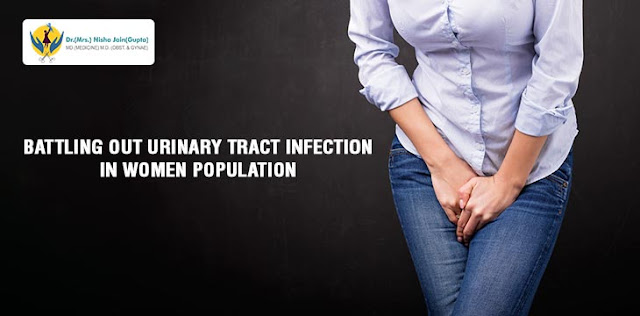Pregnancy: The Best Phase Of A Woman’s Life
Pregnancy is one of the beautiful processes of bringing a new life into the world. So, as the weeks pass, the pregnant body starts changing and working extra hard to cope, so it makes sense to take extra care of yourself and avoid unnecessary risks, especially in the first trimester. But don't be alarmed by the multitude of scare stories you mat hear. In reality, there is no reason why, with a bit of extra care and some common-sense lifestyle changes, you can't sail through your pregnancy without putting either your baby or yourself in danger.
Want to enjoy your journey of pregnancy then you need to take special care on certain issues which needs to be put in check
Smoking: You and your partner need to give up smoking, as the week's process. It is risky for the fetus developing, and one should also know that even passive smoking is dangerous to the fetus. So, smoking in pregnancy has been linked to premature birth and low-birth-weight babies and babies developing respiratory illnesses and it increases the risk of cot death.
Alcohol: Drinking alcohol can harm your baby. Usually, it has no safe limit, so it is best to stop drinking altogether. If you do drink alcohol during pregnancy the Department of Health advice is to limit yourself to one or two standard units of alcohol once or twice a week (one standard pub measure of wine, half a pint of cider, beer or lager) and NEVER binge drink (more than five standard measures).
Caffeine: The consumption of caffeine should be limited over 200mg of caffeine a day can increase the risk of low birth weight babies and miscarriage. There are certain food products such as peanuts, under-cooked eggs, and blue-vein or molded-ripened crust cheeses that can be very hazardous to the fetus.
Toxoplasmosis: There is a natural parasite that lives in unpasteurized milk and cheeses, undercooked meat, soil-grown vegetables, etc. There is only a problem if women become infected with it for the first time while you are pregnant and can cause miscarriage, birth defects, and stillbirth. There are several foods listed above, wear gloves to change cat litter, do the gardening or if lambing. Always cook meat thoroughly and wash all fruit and vegetables.
Prescription and over-the-counter medicines: One of the best things is to avoid all drugs during the first 3 months, unless they are for a pre-existing medical condition, such as asthma, and have been prescribed by your GP.
Abdominal X-Rays: The x-rays are used in radiation, which can harm your baby so they must only be used in situations where your condition is life-threatening. Dental x-rays are considered safe, but you must always tell your dentist you are pregnant.
Chickenpox And Other Viral Diseases: Most adults have had chickenpox in childhood and are therefore immune to the disease. In case the person gets caught of chickenpox during pregnancy there is a risk to both mother and baby. Viral diseases such as measles and slap cheek syndrome may affect your pregnancy and your unborn baby so always seek immediate medical advice if you have had contact with these.
Reference
Dr. Nisha Jain is the best gynecologist in Delhi and has expertise in performing Minimally Invasive Surgery (MAS) and handling sterility and high-risk pregnancy circumstances, along with an excellent academic record. if you are looking for any valuable advice and treatment during pregnancy feel free to talk to her.
Ways To Ensure An Easy Journey During Your Pregnancy
Want to enjoy your journey of pregnancy then you need to take special care on certain issues which needs to be put in check
Smoking: You and your partner need to give up smoking, as the week's process. It is risky for the fetus developing, and one should also know that even passive smoking is dangerous to the fetus. So, smoking in pregnancy has been linked to premature birth and low-birth-weight babies and babies developing respiratory illnesses and it increases the risk of cot death.
Alcohol: Drinking alcohol can harm your baby. Usually, it has no safe limit, so it is best to stop drinking altogether. If you do drink alcohol during pregnancy the Department of Health advice is to limit yourself to one or two standard units of alcohol once or twice a week (one standard pub measure of wine, half a pint of cider, beer or lager) and NEVER binge drink (more than five standard measures).
Caffeine: The consumption of caffeine should be limited over 200mg of caffeine a day can increase the risk of low birth weight babies and miscarriage. There are certain food products such as peanuts, under-cooked eggs, and blue-vein or molded-ripened crust cheeses that can be very hazardous to the fetus.
Toxoplasmosis: There is a natural parasite that lives in unpasteurized milk and cheeses, undercooked meat, soil-grown vegetables, etc. There is only a problem if women become infected with it for the first time while you are pregnant and can cause miscarriage, birth defects, and stillbirth. There are several foods listed above, wear gloves to change cat litter, do the gardening or if lambing. Always cook meat thoroughly and wash all fruit and vegetables.
Prescription and over-the-counter medicines: One of the best things is to avoid all drugs during the first 3 months, unless they are for a pre-existing medical condition, such as asthma, and have been prescribed by your GP.
Abdominal X-Rays: The x-rays are used in radiation, which can harm your baby so they must only be used in situations where your condition is life-threatening. Dental x-rays are considered safe, but you must always tell your dentist you are pregnant.
Chickenpox And Other Viral Diseases: Most adults have had chickenpox in childhood and are therefore immune to the disease. In case the person gets caught of chickenpox during pregnancy there is a risk to both mother and baby. Viral diseases such as measles and slap cheek syndrome may affect your pregnancy and your unborn baby so always seek immediate medical advice if you have had contact with these.
Reference
Dr. Nisha Jain is the best gynecologist in Delhi and has expertise in performing Minimally Invasive Surgery (MAS) and handling sterility and high-risk pregnancy circumstances, along with an excellent academic record. if you are looking for any valuable advice and treatment during pregnancy feel free to talk to her.




Comments
Post a Comment